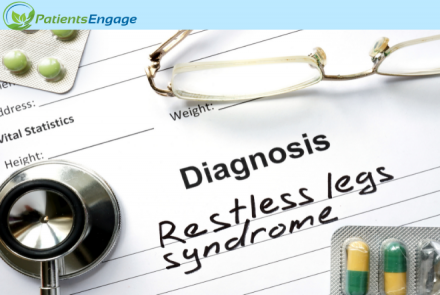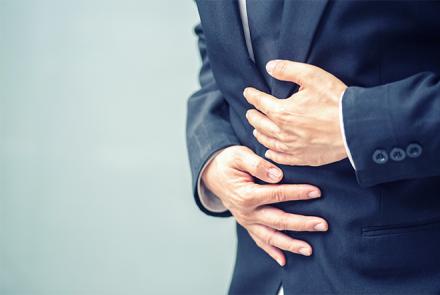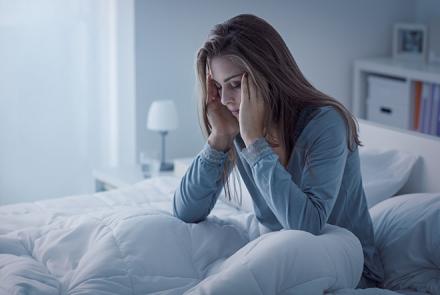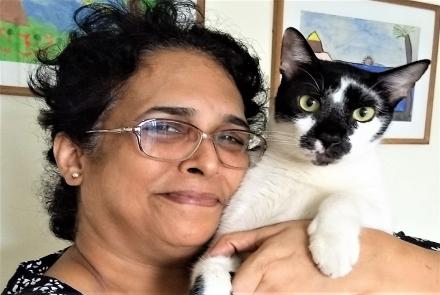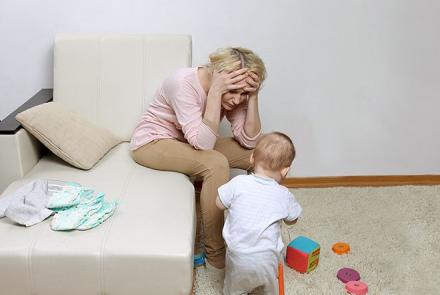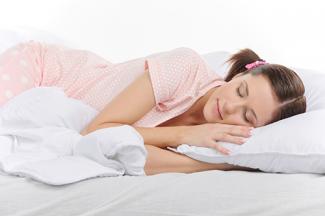
By family practitioner and paediatrician Dr Gita Mathai. How much sleep we need, the best time to go to bed, effects of sleep deprivation and how to improve your sleep practice.
How much sleep do we really need?
We actually sleep away one third of our lifetimes. In infancy, a baby may sleep anywhere from 14-17 hours a day. Their sleep requirements are not controlled by outside forces like light, sound or work. So, babies sleep as much as their body needs. As age increases, the number of hours spent in sleep becomes less.
Here’s how much sleep you need:
- Growing children need 11-14 hours of sleep up to the age of 2 years
- Preschoolers (2-6 years) need 10-13 hours
- 6-13 year-olds need 9-11 hours
- Teenagers need 8-10 hours
- Adults (above 18) need 7-9 hours
- Those over 65 need 7-9 hours of sleep (even if not continuous)
Sleep requirements in adults are individualised. Some are able to function efficiently with 5-6 hours sleep. As an adult, if you feel you are not getting enough sleep, it is important to maintain a sleep diary. See how you feel on varying hours of sleep – how many hours do you need to feel refreshed?
Stages of sleep
Sleep is divided into non-REM (Rapid Eye Movement) sleep followed by REM sleep.
Non-REM sleep has three stages. The length of the stages varies.
Stage 1 is a light doze. Eyes are shut but you are still aware of the surroundings and easily roused. After 5-10 minutes you pass into Stage 2 with light sleep. Arousal is still possible. The heart rate slows and the internal body temperature drops. After a varying length of time, deep sleep (Stage 3) occurs. If aroused from this, mild disorientation occurs for a few seconds.
The non-REM sleep lasts for about an hour and a half.
After this you slip into REM sleep. This lasts initially for about 10 minutes. There are vivid dreams. The heart rate and breathing quicken.
Non-REM and REM sleep alternate throughout the night. With each cycle, the duration of REM sleep increases till it lasts about an hour.
In babies, REM sleep accounts for 50% of the time spent in sleep. In adults it is only 20%.
How long does sleep deprivation take to set in?
Acute sleep deprivation occurs when sleep is insufficient for 1-2 days. This may be due to a life-changing event (birth, death, illness), travel, a party or other short-lived event.
Chronic sleep deprivation sets in if you sleep for less than 7 hours for three days in a row.
Since acute sleep deprivation is a limited event, people “catch up” on their sleep by sleeping 10 hours or more at a stretch. Provided this is not a regular occurrence, recovery is spontaneous and rapid.
When there is chronic sleep deprivation, physical and mental changes set in after three days. These gradually increase in severity. If the insomnia is due to an immediate problem (night shifts or medical problems), then when the problem is resolved, the sleep pattern can correct itself.
What are the health effects of sleep deprivation?
Health effects occur when sleep deprivation is chronic. Here are some repercussions of sleep deprivation:
In infants: Sleep deprivation is rare. It may be caused due to a coexisting medical condition like a heart or lung problem or GERD (Gastro Esophageal Reflux Disease). The baby will show lack of interest in surroundings, yawn frequently, have fluttering eye lids, keep pulling the ears or avoid stimulus.
In adolescents: Adolescents tend to have irregular and inadequate sleep habits particularly during weekdays. As they try to compensate during the weekends, their circadian rhythm gets disrupted. This causes inability to concentrate and forgetfulness (homework assignments etc). School work suffers. If sleep deprivation is regular and chronic, it is almost impossible to improve cognitive performance with “catch up sleep” over weekends. The disrupted circadian rhythm causes hormonal imbalances and can aggravate acne, cause tempers to flare up, hot headedness and cause inappropriate responses to situations. Daytime drowsiness can cause accidents. Lack of sleep can also cause failure to grow as growth hormones are released during sleep.
In working adults: Lack of sleep can result in lack of concentration, forgetfulness, poor decision making, overuse of alcohol, caffeine or stimulant drugs, and accidents at the workplace and on the road.
In the elderly: Chronic lack of sleep may aggravate hypertension and worsen confusion and dementia. It can result in habituation to sleep medication. The resulting drowsiness can lead to accidents, fractures and falls in the house.
Lack of sleep also causes the following disruptions regardless of age group:
- Personality changes, irritability and depression set in
- Tension headaches
- The abdomen may be queasy with bloating, diarrhoea or constipation. This is because some of the inflammation-producing chemicals called cytokines are regulated during sleep. If the sleep duration is chronically insufficient, the levels of cytokines are elevated. This has far-reaching effects on the gastrointestinal tract, aggravating existing diseases like inflammatory bowel disease (IBS), gastroesophageal reflux disease (GERD), liver diseases and even colon cancer.
- .Inability to recover rapidly from illness or injury. This is because growth hormone responsible for repair of tissues and development of muscles is released during sleep.
- Memory and recall may become faulty. Chemical reactions in the brain responsible for this get depleted as they are used up during long waking hours. During sleep the brain restores itself. Inadequate sleep results in a chronic deficiency in these chemicals. Focusing on the task at hand, reaction to a situation and swift response and execution require adequate brain chemicals and sufficient sleep.
- Sleep deprivation increases the production of a stress response hormone called cortisol (which promotes weight gain), decreases insulin levels and increases levels of an appetite stimulant chemical called ghrelin. This results in overeating and obesity.
- The higher levels of stress hormones that build up over time with sleep deprivation elevates the blood pressure and can eventually affect the heart.
- Immunity drops with insufficient sleep as the body is no longer able to produce sufficient cytokines and antibodies to ward off invading bacteria and viruses.
What is the best time to go to bed?
Every individual has a circadian rhythm and you have to stay true to that to some extent. Some people are late-night owls and it’s difficult for them to fall asleep early. But if you go to bed very late at night, you will wake up feeing less refreshed. So, if you want to reset your biological clock, you can bring your bedtime forward by only half an hour each week. So in two weeks, you will be sleeping an hour earlier.
Do weekend sleep-ins help us catch up on lost weekday sleep?
Recovery after a single night of deprived sleep is rapid. It seldom has side effects. Recovery usually occurs if it is compensated for the next night with increased sleep.
But “recovery sleep” is a one-off phenomena. If sleep deprivation is regular and chronic, cognitive performance suffers. Eventually shift workers, long distance drivers (automobiles, trucks, planes) develop chronic sleep deprivation.This can be tackled to some extent with ear plugs, eyemasks, a totally dark and silent sleep environment and attempting to keep to some sort of a regular sleep schedule.
Elderly people often complain of insomnia but they nap all day. Could that be causing their sleeplessness at night?
Elderly people are like babies. They get their total hours of sleep in fragments. But do remember that elderly people often sleep throughout the day not because they are sleepy but because they are bored and have no friends, hobbies or work and nothing constructive to do. If you can keep them engaged or active, this should ease that problem.
Causes of insomnia or sleep deprivation
You may suffer from inadequate sleep due to some of the following:
- Anxiety and tension
- Changes in work timings or night shifts
- Pain, due to arthritis or back ache
- Restless legs syndrome
- Breathing difficulties, such as sleep apnea. People suffering from this repeatedly stop breathing while sleeping and then jerk awake, so sleep is not restful.
- Women are known to suffer from sleep deprivation during menopause and pregnancy. This is due to the hormonal changes that occur in their bodies at that time. Andropause in men also causes hormonal changes. One of the effects is snoring and sleep apnea, which can result in chronic sleep deprivation.
- Exercising too close to bedtime - this releases chemicals from the muscles, which “tune up” the body. Unless exercise is stopped at least two hours before bedtime, sleep is poor.
- Electronic gadgets in the bedroom emit a ‘blue light’ even when switched off. This stimulates the brain and prevents restful sleep.
- In adolescents, the pressures of their academic and social life, the Internet, social media, television and mobile phone prevent them from getting adequate sleep.
Acute sleep deprivation - How to stay awake while fighting sleep
Our bodies are wired with an internal clock that sets a sleep-wake circadian rhythm. Acute sleep deprivation may cause fatigue, “dropping off to sleep” and inability to concentrate while working.
Accidents can occur while driving or operating heavy machinery if you are sleep deprived. This is because you may inadvertently doze off with a narcolepsy-like episode of microsleep. This is one of the reasons why planes have “auto-pilot”, which beeps if the pilot falls asleep and things go awry.
If you have to get some work done, try these remedies to fight sleep:
- Work while standing up (it is difficult to sleep standing up)
- Jog in place or take a brisk walk. These effects however are temporary.
- Light affects the brain, so working in bright light reduces sleepiness.
- Listen to music. We tend to become used to background noise and can sleep through the sounds of fans and air-conditioning, but a new sound stimulates the brain and reduces drowsiness.
Tackling chronic sleep deprivation – how to get a good night’s sleep
13 interventions that can be tried for insomnia:
- Firstly, if there is a medical condition – sleep apnea or pain - responsible for your sleeplessness, you need to get that treated
- Do not eat a heavy meal or exercise just before bedtime
- Do not drink caffeine in any form after 3 pm as the effects take 6-8 hours to leave the body (This is highly individual).
- Do not nap – unless you are so sleepy that you are dozing off, in which case it would be dangerous not to take a nap.
- Try to relax or meditate before sleeping. Any type of deep breathing meditation or yoga technique is effective.
- Sleep at the same time every day. If sleep does not come a half hour after lying down, do not toss and turn. Get up and read a book. Go back to bed later.
- Make sure that all electronic devices are turned off and preferably left in another room.
- Avoid alcohol in the evening. Alcohol may make you fall asleep but its effects are short-lived. The sleep is not restful and there is early awakening.
- Medications like anti-depressants, anti-anxiety agents or sleeping pills can be taken, if prescribed. The danger is that they may become habit forming with the body needing higher doses to achieve the same benefit. These should be avoided as far as possible unless pain or a serious illness prevents sleep.
- Chinese herbs, ayurveda, homeopathy, chamomile (brew, pills), valerian tablets, melatonin pills and a variety of other natural products have been touted as cures for insomnia. None of these have been adequately studied. Their dosage, side effects and interaction with allopathic medication taken for other ailments are not known. But the mind is a powerful thing, and the power of suggestion itself may be sufficient to make these treatments work! Check with a doctor before taking any of these to ensure they do not clash with any other medications you may be on.
- Relaxation, a massage, a glass of hot milk and a warm bath may go a long way to help the tired brain and body muscles “unwind” and promote sleep.
- Certain foods like walnuts, bananas, tuna fish release chemicals like serotonin, melanin and tryptophan. They also have a high potassium content, which relaxes the muscles. All this works in tandem to promote sleep. Eating them as a snack before bedtime also produces a sudden rise and then fall in the blood sugar, which will promote sleepiness.
- If insomnia and chronic sleep deprivation cannot be managed at home by simple measures, before you request sleeping tablets from your family physician, schedule a session in a “sleep lab” and see a psychologist or psychiatrist. They have a variety of techniques like biofeedback and cognitive behavioural therapy (CBT) to tackle chronic sleep deprivation. Typically treatment of insomnia takes about six weeks. To be successful, it involves keeping a sleep diary and following the therapists instructions about diet, stimuli and exercise to the letter.


